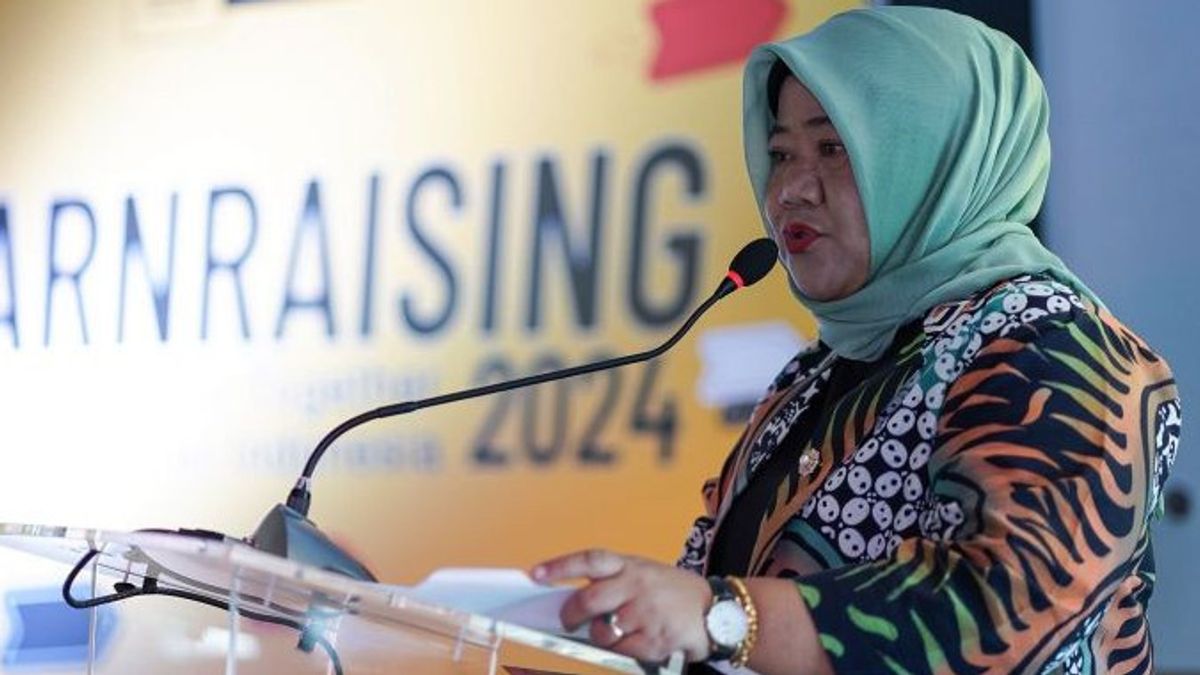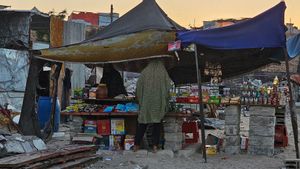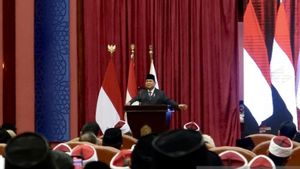JAKARTA - Director of Financial Services and BUMN of the Ministry of National Development Planning/National Development Planning Agency (PPN/Bappenas) Rosy Wediawaty believes that Indonesia's economic productivity can be supported by strengthening the economy and Islamic finance.
"I believe that economic productivity can be supported by strengthening the Islamic economy and finance. The sharia economy will be a form of new growth that is very potential that we need to optimize together," he said virtually at Sharia Economics And Finance International Seminar - Police for the Prabowo Government, Jakarta, quoted from Antara, Wednesday, September 4.
According to him, the reason that underlies optimism for the Islamic economy and finance is because the sector has such great potential.
Over the past five years, exports of Indonesian halal products have shown a better growth trend compared to imports of halal products. For example, in 2022, Indonesia's global halal product exports will increase by around 9.05 percent compared to 2021.
During the 2017-2021 period, the halal value chain share showed an increasing trend with a contribution of around 25.44 percent to Gross Domestic Product (GDP) in 2021. However, in 2022 it experienced a significant decline, and increased again in 2023 with a contribution of almost 23 percent to GDP.
The Indonesian Muslim-friendly tourism sector is also said to have great potential to develop. Based on the 2023 Global Muslim Travel Index (GMTI). Indonesia is ranked first because it excels in access, communication, environment, and Muslim-friendly tourist destination services. Indonesia's advantages are highlighted in service indicators such as halal restaurants, playgrounds, airports, hotels, cultural tourism sites and objects, communication skills, marketing, and awareness of stakeholders.
Consistently, Indonesia's Islamic finance also grew positively by 76.5 percent during 2017-2019 although the share of the Islamic financial market showed a slowdown in overall growth and per sector.
The collection of Islamic social funds sourced from assets, other religious funds, and productive businesses shows an increasing trend from 2022-2023. This effort is considered to be a source of development financing. However, strategic steps are needed to accelerate the growth of these assets in the future, considering that based on the study, there is a potential for collecting annual zakat of up to IDR 327 trillion.
On this occasion, he also conveyed the direction of economic and Islamic finance policies for the National Long-Term Development Plan (RPJPN) 2025-2045.
SEE ALSO:
First, strengthening the Islamic economy and finance in supporting national economic development is carried out through increasing Indonesia's Islamic financial position at the global level, then increasing the role of Islamic social funds in the context of poverty alleviation and reducing socio-economic inequality.
Then, strengthening the sharia industry ecosystem, especially the food and beverage industry, Muslim fashion, cosmetics and pharmaceuticals, tourism, and the creative economy which includes halal raw materials, strengthening the industrial value chain, entrepreneurship and halal industry, and Micro, Small and Medium Enterprises (MSMEs).
Finally, strengthening regulations for Islamic economic and financial institutions as well as Islamic economic and financial infrastructure.
The English, Chinese, Japanese, Arabic, and French versions are automatically generated by the AI. So there may still be inaccuracies in translating, please always see Indonesian as our main language. (system supported by DigitalSiber.id)
















